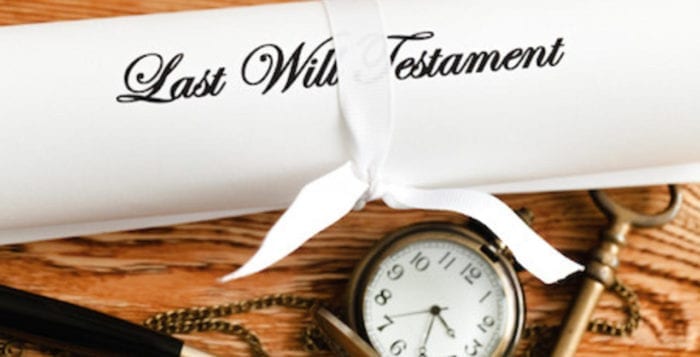
By Linda M. Toga, Esq.
THE FACTS: After my husband died, I remarried a wonderful man named Joe. Joe had been married before and had 3 children with his first wife. Since Joe moved into my house and was helping to pay the carrying costs, I decided to add Joe as an owner on the deed to my house. Shortly after Joe’s name was added to the deed, he died suddenly without a will.
His grown children are now claiming that they have an ownership interest in the house based upon the intestacy statute. They told me that the statute provides that when a married person dies without a will and is survived by a spouse and children, that his assets are divided between the spouse and children.
THE QUESTION: Are they correct?
THE ANSWER: Although the children are correct with respect to the intestacy statute, the statute may not apply to the house. Whether it does, and whether Joe’s children own a share of your house will depend on the language used when you added Joe to the deed.
HOW IT WORKS: Turning first to the intestacy statute, the statute applies to assets that are owned by the decedent alone. In other words, bank accounts and real property on which the decedent is the sole owner will pass pursuant the intestacy statute. On the other hand, assets that the decedent owned jointly with another person, assets that are in trust and assets for which a beneficiary designation form has been signed do not pass pursuant to the intestacy statute. Instead, they pass by operation of law to the joint owner or named beneficiary.
With respect to your house, how Joe was identified in the deed by which you gave him an ownership interest in your house will determine whether his children now own a share of your house. If Joe was named as a joint tenant with rights of survivorship, as a tenant by the entirety or simply identified as your spouse, you are the sole owner of the property. Under these circumstances, the house is not part of Joe’s intestate estate and, therefore, is not subject to the intestacy statute. While you will likely have to share with his children other assets that Joe may have owned individually at the time of his death, his children are not co-owners of your house.
If, however, you added Joe to your deed as a co-tenant, creating a tenancy in common, you may find that you only own 50 percent of your house.
That is because co-tenants can each dispose of their share of property as they please. When a co-tenant dies without a will, his share in the property in which he had an ownership interest will pass under the intestacy statute. Pursuant to the statute, the surviving spouse is entitled to the first $50,000 of the estate and must then split the balance of the estate 50/50 with the decedent’s children.
If Joe had sufficient assets in his name, you may be able to satisfy the children’s share by distributing to them funds equal to their 50 percent share. However, if Joe’s interest in the house is the only asset he owned at the time of his death, and his interest is worth more than $50,000, you are going to have to buy out his children with your own funds if you want sole ownership of the house.
Although your motive for adding Joe to your deed was admirable, I am sure you had no idea that doing so could result in having his children as co-owners of your house. In other words, you did not know what you did not know. While I hope that the language in the deed is favorable to you and that Joe’s children are mistaken as to their ownership interest in the house, in the future, the best way to avoid costly, unintended consequences when signing documents is to consult an experienced attorney before you sign.
Linda M. Toga, Esq. provides legal services in the areas of estate planning, real estate, small business services and litigation from her East Setauket office.










